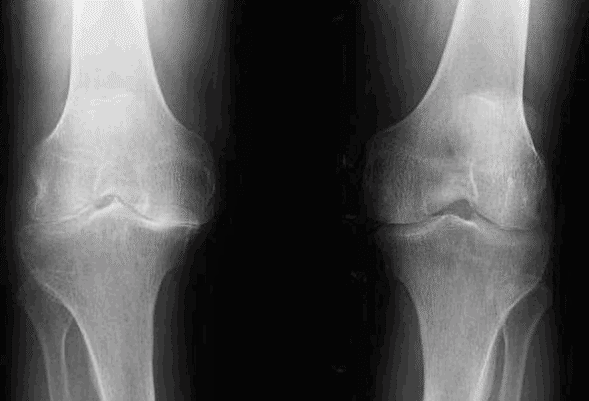Chondroitin Sulfate Use Linked to Reduced Need for Knee Replacement
OARSI 2013: More support for the supplement chondroitin sulfate (CS) in osteoarthritis: In a large observational study from Spain, six months' use of CS significantly reduced the likelihood of having total knee replacement. Observers noted the well-known issues in applying this knowledge in the US.
Use of at least 800 mg/day of chondroitin sulfate achieved significant reductions in the likelihood that patients with osteoarthritis of the knee would proceed to total knee replacement (TKR) after six months, according to results of a large observational study from Spain. The relationship was dose-dependent, confirmed by pharmacy and hospital records, and a similar relationship was not observed in a comparative analysis studying use of the bisphosphonate alendronate.

Data came from the SIDIAP database of more than 5,000 people in the Catalonia region of Spain, comprising records from primary care providers, pharmacies, and hospital administrative databases. The study included anyone diagnosed with osteoarthritis of the knee (but no other site) between 2006 and 2011, ultimately including 122,633 patients.
Use of CS for at least six months led to a 13% reduction in TKR, and consistent use for a year was associated with a 23% reduction, said Daniel Prieto-Alhambra MD, who is a senior clinical research fellow in the Nuffield Department of Orthopaedics, Rheumatology and Musculoskeletal Sciences at the University of Oxford. "The incidence goes down as cumulative use increases, but only above 360 doses," he said.
The study adds to a growing body of "clearly supportive data" in favor of the supplement CS as a structural modifier in knee OA, remarked Marc Hochberg MD, MPH, director of the rheumatology division at the University of Maryland Medical Center and chair of the session (which was sponsored by the Spanish pharmaceutical firm Bioiberica, a manufacturer of CS). For instance, a randomized study by Wildi et al of the University of Montreal showed reductions in knee cartilage volume loss among OA patients who took CS for at least six months. But it remains difficult to apply the results of studies using pharmaceutical-grade CS in Europe for patients in the US who use "nutraceutical" supplements unregulated by the FDA, he added.
This issue may never be resolved, predicted consultant biochemist C. William Wu PhD, of Detroit, because CS is already wildly popular in the United States, is available in a wide variety of forms, and manufacturers have no incentive to mount a clinical trial.
There are also problems in Europe, remarked Daniel Uebelhart MD of the Swiss National Accident Insurance Fund: Some patients in Switzerland consume CS derived from chicken, he said, unaware that unlike the pharmaceutical-grade bovine CS it has "absolutely no effect." This fact is not generally known, he added, because of the difficulty in publishing negative results.